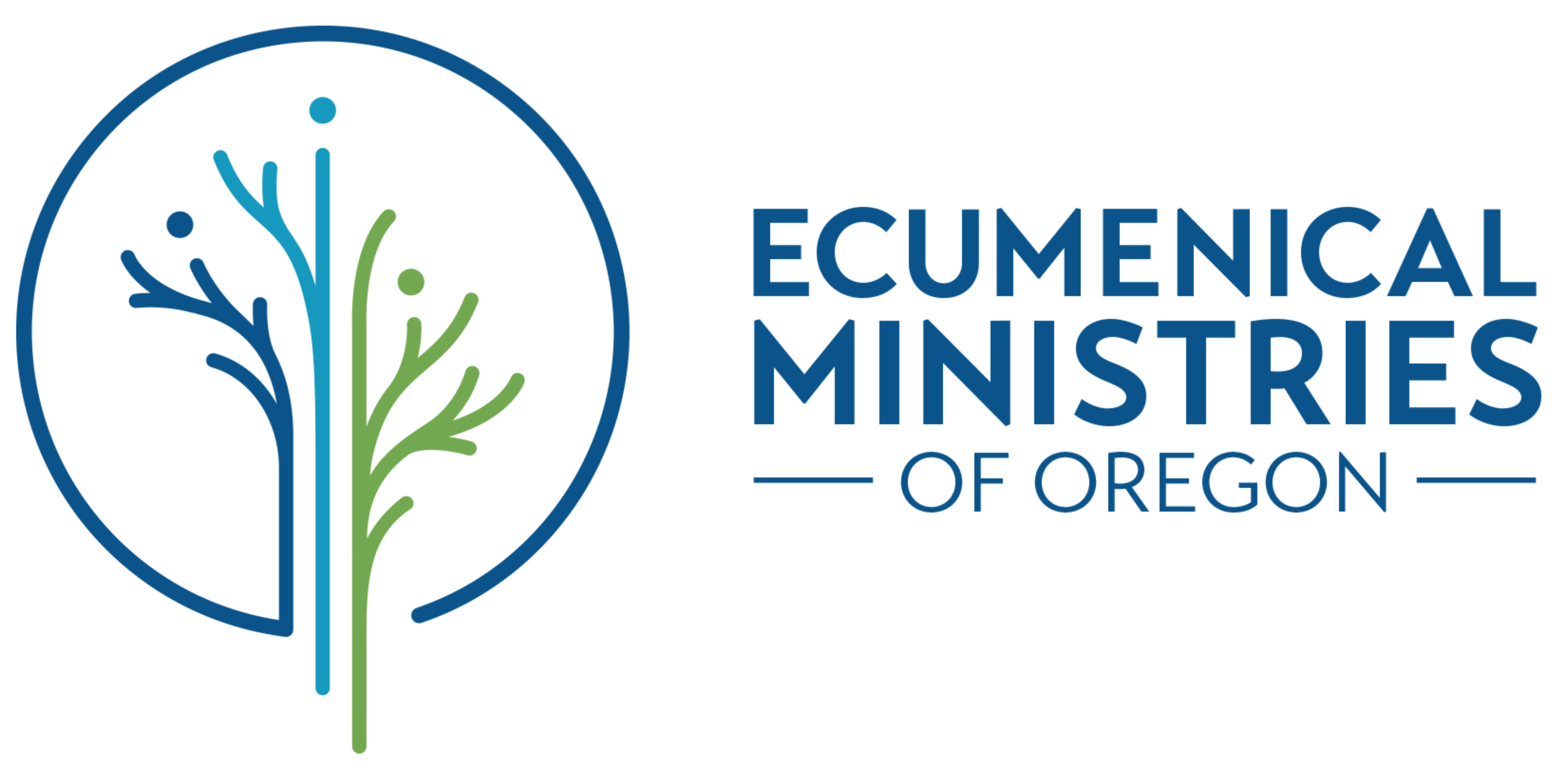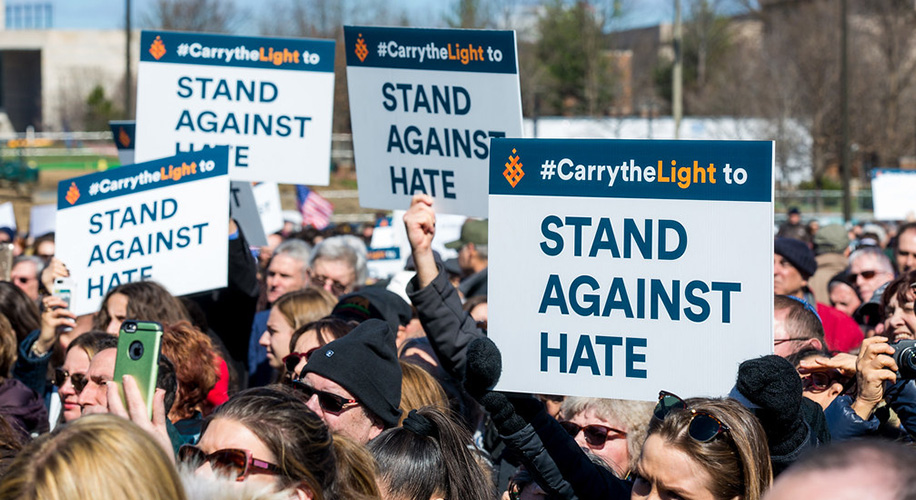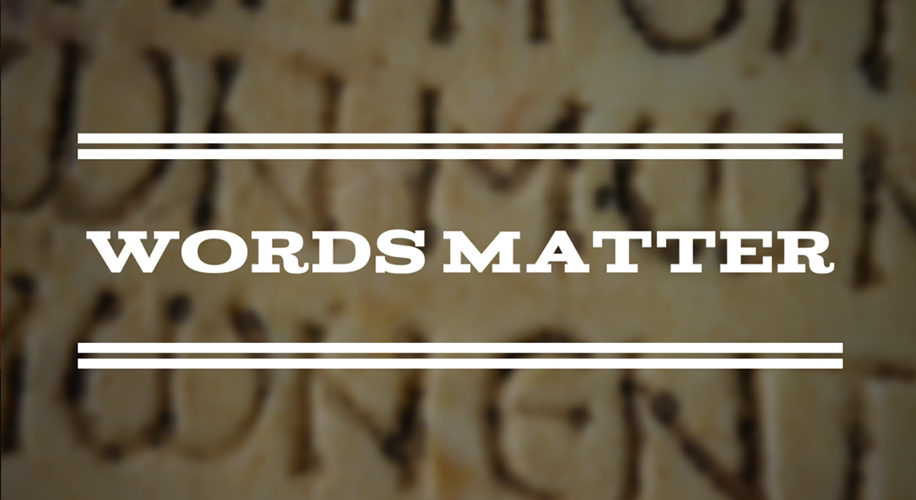For the entire law is fulfilled in keeping this one command: “Love your neighbor as yourself.” If you bite and devour each other, watch out or you will be destroyed by each other. Galatians 5:14-15
Daily, a war is raging within our country. Hateful words are leading to violent deeds. The Galatians text rightly warns us that “we will be destroyed by each other” if we continue to “bite and devour” our so-called enemies. Our words matter. They have the power to heal or to destroy.
The recent tragic shootings in Gilroy, El Paso and Dayton illustrate the deadly consequences of unleashed hatred. The horrific reality is that an average of one mass shooting per day has occurred in the United States in 2019. There is strong evidence that the most vulnerable among us are disproportionately reaping the consequences of the hatred sown in our communities. For hate crimes continue to spiral upwards in the United States. In 2018 alone, these crimes rose nine percent in our major cities, for a fifth consecutive yearly increase. Three out of five were motivated by race and ethnicity. Religion and sexual orientation were the other two primary motivators.
The familiar story goes that one evening, an elderly Cherokee grandfather told his grandson about a battle that goes on inside people. He said, “My son, the battle is between two ‘wolves’ inside us all. One is filled with anger, envy, jealousy, sorrow, regret, greed, arrogance, self-pity, guilt, resentment, inferiority, lies, false pride, superiority and ego. The other is filled with joy, peace, love, hope, serenity, humility, kindness, benevolence, empathy, generosity, truth, compassion and faith.” The grandson thought about it for a minute and then asked his grandfather, “Which wolf wins?” The grandfather simply replied, “The one that you feed.”
It is way past time for our nation, individually and collectively, to do some serious soul-searching. What are we feeding within ourselves on a daily basis? What are we reading, what are we writing, what are we filling our minds with? For what we take in will result in actions that we take outwardly. Oscar Romero remarked, “You cannot reap what you have not sown. How are we going to reap love in our community if we only sow hate?”
Sadly, we know that hate crimes are not a new phenomenon. A country with a history of genocide and slavery cannot escape this fact. Strong legislation to address hate crimes and to promote gun safety is essential, and we must continue to work together to enact laws that make all of our communities safer. But changing the human heart requires transformation at a much deeper level. Referencing Mark 7:21, Pope Francis said, “Jesus taught that the true battlefield, where violence and peace meet, is the human heart, for ‘it is from within, from the human heart, that evil intentions come.’”
In the midst of these disheartening trends, we are not powerless. As people of faith, we have resources within our traditions to guide us. Prayer and sacred texts ground us in the foundations of mercy and justice, beginning with the belief that every one of us is created in God’s image, and that we are beloved. Starting there gives us the courage to look deeply within ourselves, and to acknowledge our own fear and the fear that permeates our world. Instead of feeding fear, we are called to “love our neighbor as we love ourself.” Within that context we can, and must, speak out powerfully against hateful rhetoric, without resorting to hate speech in our response.
We also have the wisdom of spiritual leaders to call on and to emulate. I often return to The Rev. Dr. King’s six principles of non-violence. These principles teach us how to respond prophetically to hate with courageous, active love, seeking to defeat injustice, not people. Our response to the “evil doer” must not sink to the level of the hater, but instead seek to restore community. In the words of St. Francis, “As you announce peace with your mouth, make sure that you have greater peace in your hearts.”
It is important to be mindful of what we regularly expose ourselves to in the news and social media. Absorbing toxic rhetoric can lead us to cynicism, hopelessness and hate. Instead, it is important to “take in” large doses of compassionate wisdom, build communities of care and learn positive forms of spiritual resistance in these challenging times.
We reap what we sow. Every act of kindness and mercy that we offer to one another sows seeds of love. No act is too small. It is up to each of us to counter words and deeds that fuel hatred with the powerful and healing antidote that is love.
Hate … burns off everything but itself, so whatever your grievance is, your face looks just like your enemy’s. Toni Morrison
Jan Musgrove Elfers
EMO President




